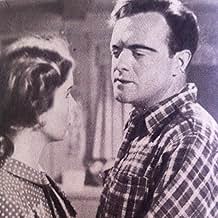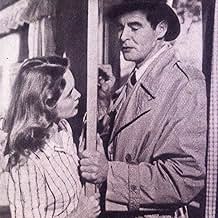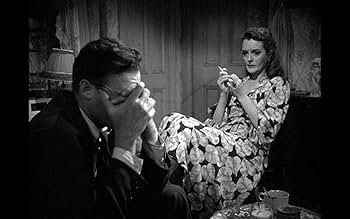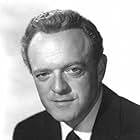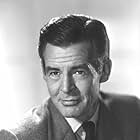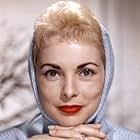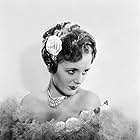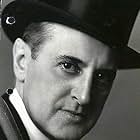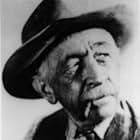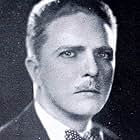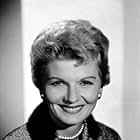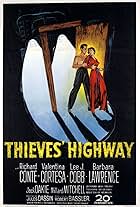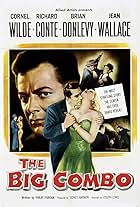An embittered, vengeful POW stalks his former commanding officer who betrayed his men's planned escape attempt from a Nazi prison camp.An embittered, vengeful POW stalks his former commanding officer who betrayed his men's planned escape attempt from a Nazi prison camp.An embittered, vengeful POW stalks his former commanding officer who betrayed his men's planned escape attempt from a Nazi prison camp.
- Awards
- 1 nomination
- Bellboy
- (uncredited)
- German
- (voice)
- (uncredited)
- Convention Party Drunk
- (uncredited)
- Bystander
- (uncredited)
- Voice
- (voice)
- (uncredited)
- Heavy Jowled Man
- (uncredited)
- Newsboy
- (uncredited)
- Bystander
- (uncredited)
- Director
- Writers
- All cast & crew
- Production, box office & more at IMDbPro
Storyline
Did you know
- TriviaAll the credits except for the title are at the end of the movie, highly unusual for that time.
- GoofsAt the end of the movie, when the car crashes head-on into the light pole, Frank Enley is thrown forward by the impact. He is next seen lying in the street several yards to the rear of the car.
- Quotes
Joe Parkson: Sure, I was in the hospital, but I didn't go crazy. I kept myself sane. You know how? I kept saying to myself: Joe, you're the only one alive that knows what he did. You're the one that's got to find him, Joe. I kept remembering. I kept thinking back to that prison camp. One of them lasted to the morning. By then, you couldn't tell his voice belonged to a man. He sounded like a dog that got hit by a truck and left him in the street.
- ConnectionsFeatured in Pulp Cinema (2001)
World War II is an undercurrent in many post-war noirs. A generation of men had faced violence and death; they couldn't settle back into their ostentatiously wholesome communities, and they were all too ready to pull out their service revolvers to solve peacetime problems. ACT OF VIOLENCE offers the most direct analysis of the war as a source of noir angst, becoming both one of the best examples of the genre and one of the best films about the effects of war. Four years after America's victory, it was still daring to admit that not all of our boys behaved honorably overseas, and that our prosperity might rest on corrupt foundations.
Frank Enley (Van Heflin) is a perfect image of postwar success, a war hero with a thriving business, a nice house in the suburbs, a beautiful wife and a young son. This idyll of fishing trips and checkered aprons is invaded by Joe Parkson (Robert Ryan), a creepy, limping, gun-wielding, apparently deranged stalker. He was with Frank in the army and in a P.O.W. camp, and holds a mysterious, murderous grudge against him. The first part of the movie plays like a horror film, using magnified sounds--especially the slow, shuffling drag of Parkson's lame leg--in eerie stillness to heighten suspense. As we learn more about what really happened in the war, the black-and-white scenario of threatened innocence unfolds into a complex moral puzzle. Can desperate circumstances or good intentions mitigate an act of betrayal and moral cowardice? Is violent revenge ever justified?
Robert Ryan starts out in typical form: intense, tightly-wound, scary, seething with hate. But we also get to glimpse the suffering and moral outrage that underlie his tortured obsession. His anger might be righteous, but he's still a figure of terror. Van Heflin has the richer part, and he reveals the full measure of his under-appreciated brilliance. He doesn't look like a movie star--he was well described as "attractively homely"--and he doesn't act like a movie star either. He's so transparent and direct; he never advertises what he's doing. Like Arthur Kennedy, he specialized in ambiguity, playing nice guys with something shifty and unreliable about them, or unscrupulous heels with decent cores. Here he evolves from an amiable pillar of the community to a man so sick with self-loathing that he can hardly stand up straight.
In a classic noir trajectory, he moves from the sunny suburbs to the wasteland of an urban night, where the desolate streets around L.A.'s Angel's Flight mirror his state of mind. (The suburbs too have dark shadows and unsettling overtones, like the background motif of the Enleys' baby screaming behind the bars of his crib or playpen, trapped and helpless as his father.) At the end of his rope, Frank meets a friendly, worn-out barfly (a shockingly weathered and tawdry Mary Astor.) Astor works wonders with a clichéd part, all nervous tics and generosity pinched by fear and bad memories. She keeps talking about "getting her kicks"--it's all she has left. "Gee, there's no law says you gotta be happy."
In this seedy underworld, the man with the tortured conscience meets a man with no conscience, a killer-for-hire with a smooth voice and plump, evil face (Barry Kroeger) who plays the part of Satan, tempting Frank to get rid of his problem the easiest way. Heflin manages to retain sympathy for his weak and sometimes despicable character, through the honesty and vividness of his anguish. Fred Zinneman keeps the suspense mounting through taut, spare direction: no excessive music or flashy visuals or extraneous flourishes, just a relentless focus on the collision courses of the main characters, who include Frank's wife (the girlish, gorgeous Janet Leigh) and Parkson's girlfriend (Phyllis Thaxter), who doesn't want her man to be a murderer.
What would you do if you were starving, literally fighting for survival, and you had a chance to save yourself? What if you had done something terrible and knew that only one living witness knew about it? What if you were that witness? There are no easy answers in this movie, which attacks the popular notion that when a war is over it's over, and people can just get on with their lives. An "act of violence" is never the end, it always leads to another.
- imogensara_smith
- Dec 9, 2007
- Permalink
- How long is Act of Violence?Powered by Alexa
Details
Box office
- Budget
- $1,290,000 (estimated)
- Runtime1 hour 22 minutes
- Color
- Aspect ratio
- 1.37 : 1
Contribute to this page



